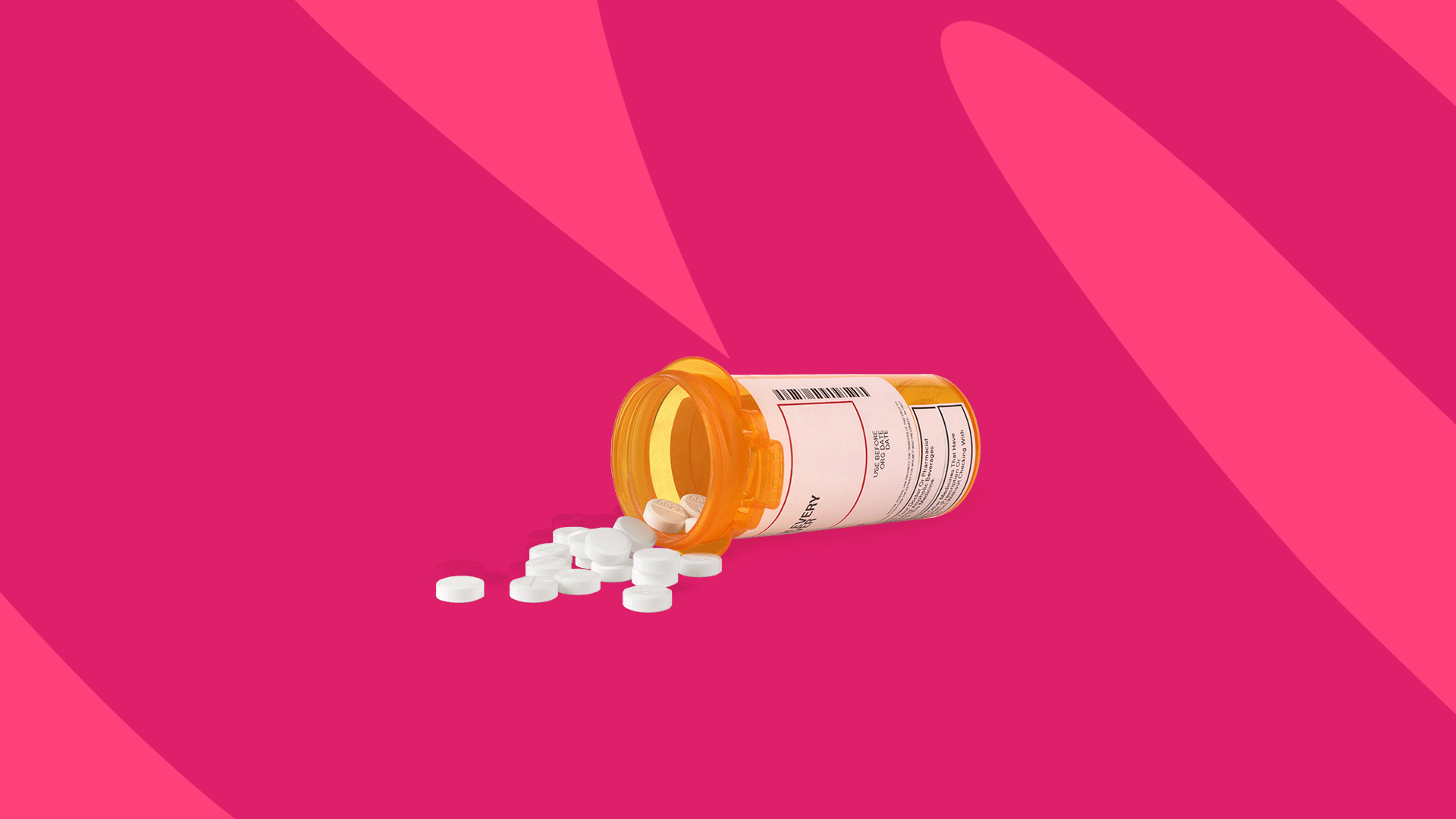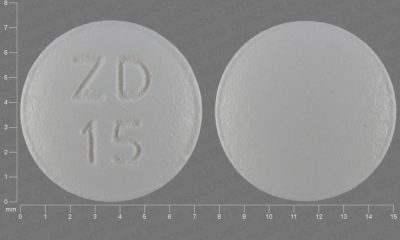Health
9 Benefits of kefir and side effects

Discover the 9 Health Benefits Of Consuming Kefir and side effects.
The health benefits of consuming kefir are abundant, it is a cultivated and creamy product with surprising attributes for the body.
Its refreshing, sour taste is similar to drinking yogurt but contains beneficial yeast and ‘probiotic’ bacteria found in yogurt
What is kefir?
Kefir is known to be a fermented drink made from kefir grains, specifically from the Caucasus mountains between Asia and Europe. The word ‘kefir’ originates from the Turkish word ‘keyif’, which means ‘to feel good.
Kefir grains contain several species of bacteria and yeast. They are small, yellowish-white in color with the appearance of miniature cauliflowers.
The history of kefir
Kefir has a very particular history that goes back a few centuries ago, were shepherds in the Caucasus mountains discovered that fresh milk transported in leather bags occasionally fermented into a fizzy drink.
In the Caucasus Mountains, legend has it that the resulting kefir grains (which are not a true grain) were a gift to the Orthodox to the Prophet Mohammed, who instructed them on how to use the grains.
Mohammed strictly forbade them to reveal the secret of Kefir Preparation to other people, or to pass kefir grains to anyone, because they would lose their “magic force.”
Legend explains why kefir grains and the method of preparing kefir have been shrouded in mystery for so long.
For most of recorded history, kefir was hardly known outside the Caucasus Mountains, although Marco Polo mentioned it when recounting his travels.
This self-carbonated dairy-based drink continues to be popular in Russia, Southeast Asia, and Eastern and Northern Europe and has recently gained some popularity in the United States.
Kefir production
The microorganisms and yeasts that are originally produced in kefir are adopted symbiotically to offer superior health benefits when ingested or consumed regularly.
This food is loaded with excellent vitamins and minerals, it already contains complete proteins that are easily digested and have natural antibiotic properties.
For those who are lactose intolerant, the abundance of yeast kefir and beneficial bacteria provides lactase, an enzyme that consumes most of the lactose that remains after the cultivation process.
Kefir can be made from any type of milk, cow, goat, or sheep, coconut, rice, or soy. Although it has a slightly mucous formation, the mucosa has a “clean” quality that creates the ideal conditions in the digestive tract for the colonization of friendly bacteria.
Kefir is made from white or yellow gelatinous particles commonly called “grains.” This makes kefir a unique food, as no other culture is known to give milk to form grains.
The grains have a combination of bacteria and yeast agglomerated with casein, which is the protein in milk, and also sugars.
The grains ferment the milk, incorporating their friendly organisms to create the cultivated product.
The grains are then removed with a strainer before consumption of the kefir and added to a new batch of milk.
Health benefits of Kefir
The health benefits of consuming kefir are considered a long-lived elixir.
This fermented drink from the Caucasian plains is true food medicine, packed with good bacteria, vitamins, and protein.
1.- Rich in vitamins and proteins
Kefir milk is as nutritious and complete as milk.
It includes protein, calcium, and B vitamins, including folic acid.
It allows you to vary dairy products and is as interesting for your health as milk or yogurt.
2.- Kefir protects our flora
The “good” bacteria present in kefir enrich our endogenous flora (the microbiota) and make it more resistant to pathogenic microorganisms. They play an immune barrier role.
Also, drinking this beverage can restore a balanced microbiota after taking antibiotics.
3.- Kefir is very digestible
Immersed in milk, kefir grains coagulate casein and convert lactose (milk sugar) into lactic acid, alcohol, and carbon dioxide.
The result is a creamy, white liquid whose consistency and flavor are reminiscent of whipped milk.
It is highly digestible, it can be consumed by lactose-intolerant people, allowing them to enjoy all the benefits of milk without its drawbacks (bloating, flatulence.)
4.- Strengthens immune defenses
Kefir contains many nutrients, such as biotin and folate, that boost the immune system and protect cells.
Contains a large number of probiotics, ideal for fighting germs.
One specific to kefir is called Lactobacillus kefir and it helps defend against bacteria such as salmonella and escherichia coli.
This bacterial strain protects the immune system and prevents the growth of many bacteria.
Kefir also has another potent compound that is only present only in this probiotic drink.
This is an insoluble polysaccharide called kefiran. Which is also an antimicrobial that manages to cure Candida fungus.
5.- Heals skin problems
The lactic acid content of kefir can inhibit the growth of acne-causing bacteria, while the lactic acid, peptides, and serum contained in kefir can lighten the skin
Skin lightening products can help reduce the appearance of birthmarks, moles, and lentigo spots to better suit the surrounding skin area.
This can also work with vitiligo. Some people also lighten their skin for general cosmetic reasons (this is common in Asia).
So if you want to clear up your skin or treat acne, kefir can help you achieve a more even skin tone and clearer skin overall.
6.- Kefir can protect you from cancer
Cancer is caused by cells in the body that mutate and grow in an uncontrolled way.
A tumor is an example of this. Studies have shown that the good microorganisms found in kefir can prevent the growth of tumors.
These probiotics can delay the enzymes that transform certain compounds into carcinogens in the body.
Kefir can also act as an antioxidant and support the immune system. Kefir has been tested for its role in the protection against colorectal cancer.
In test-tube studies, it has been found to stimulate the destruction of tumor cells. Kefir was also found to help stimulate cancer cell death in leukemia research
7.- Helps prevent osteoporosis
Osteoporosis is a condition characterized by low bone mass and a deterioration in the structure of bone tissue.
This can lead to brittle bones and an increased risk of fracture which is a global problem.
Osteoporosis affects more than 200 million people and is responsible for 1.5 million fractures
One of the most successful ways to maintain bone health and reduce the risk of osteoporosis is to get enough calcium.
Calcium is not the only nutrient that can help prevent osteoporosis. Vitamin K2 has been found to play a vital role in helping the body use calcium.
Making kefir with whole milk can increase the amount of vitamin K you eat and provide benefits to your bones.
Studies have found that kefir can improve bone mass and structure in postmenopausal women.
Therefore, although a glass of milk and a glass of dairy kefir may contain the same amount of calcium, kefir can improve bone health more than milk, they attribute this to kefir’s ability to increase the body’s absorption of calcium.
8.- Helps detoxify the body
In this modern age, toxins surround people, we consume it through food, and it is absorbed through cosmetics and other products.
Kefir can be used to detoxify the body. It is especially effective against aflatoxins. Aflatoxins are common toxins that we are exposed to in food.
They are spread through mold and tend to contaminate peanuts.
9.- Kefir can combat the effects of aging
Aging and age-related diseases are strongly linked to damage from oxidative stress.
Both the milk and kefir in soy milk are high in antioxidants, so much so that they may be among the most promising food components for preventing mutagenic and oxidative damage.
This means that they can help prevent several age-related diseases, such as cancer or dementia, and can also serve to extend lifespan. Consuming kefir can help slow down oxidative damage in the body.
Why is it good to drink kefir?
• Kefir is simple and inexpensive to make at home.
• is used therapeutically around the world to alleviate chronic fatigue syndrome
• because it works as a natural tranquilizer and antibiotic.
• Kefir is an excellent food for pregnant and lactating women, the elderly, and people with compromised immunity
Health
Benefits of bay leaves and side effects

Table of Contents
Health
Serious side effects of metoprolol

- Discover the serious side effects of metoprolol.
- How does this medication work? What are its effects?
- Metoprolol belongs to the class of medications called beta-blockers. Metoprolol is used to treat high blood pressure and prevent symptoms of certain types of angina ( chest pain). It is also used to reduce the risk of death immediately after a heart attack. It works by reducing the needs of the heart during exercise.
- People who have had a heart attack take metoprolol to avoid having another heart attack. Metoprolol is often used in combination with other drugs that lower high blood pressure, such as diuretics (pills that increase urine output), when just one agent is not enough to control blood pressure.
- This medicine is available under various brand names or in different formulations, or both. A specific brand of this medication may not be available in all forms and may not have been approved for all of the conditions discussed here. Also, some forms of this medicine may not be used for all of the conditions mentioned in this article.
- Your doctor may have suggested this medication for a condition that is not listed in this Medication Information article. If you have not yet discussed this with your doctor, or if you are not sure why you are taking this medicine, consult your doctor. Do not stop taking this medicine without consulting your doctor first.
- Do not give this medicine to anyone, even someone who has the same symptoms as yours. This medicine could harm people for whom it was not prescribed.
- What forms does this medication come in?
- Apo-Metoprolol
- 25 mg
- Each white, oval, scored tablet, engraved “ME” over “25” on one side and “APO” on the other, contains 25 mg of metoprolol tartrate. Nonmedicinal ingredients: colloidal silica dioxide, croscarmellose sodium, lactose monohydrate, magnesium stearate, and microcrystalline cellulose.
- 50 mg
- Each white, round, scored tablet, engraved “APO” over “M50”, contains 50 mg of metoprolol tartrate. Nonmedicinal ingredients: colloidal silica dioxide, croscarmellose sodium, lactose, magnesium stearate, and microcrystalline cellulose.
- 100 mg
- Each white, round, scored tablet, debossed with “APO” over “M100”, contains 100 mg of metoprolol tartrate. Nonmedicinal ingredients: colloidal silica dioxide, croscarmellose sodium, lactose, magnesium stearate, and microcrystalline cellulose.
- Apo-Metoprolol (Type L)
- 50 mg
- Each pink, capsule-shaped, coated tablet, scored on one side and engraved “50” on the other, contains 50 mg of metoprolol. Nonmedicinal ingredients: carnauba wax, colloidal silica dioxide, croscarmellose sodium, D&C aluminum lake red No. 30, sun yellow aluminum lake, hydroxypropyl methylcellulose, lactose, magnesium stearate, microcrystalline cellulose, polyethylene glycol 3350, and sodium dioxide. titanium.
- 100 mg
- Each blue, capsule-shaped, coated tablet, scored on one side and engraved “100” on the other, contains 100 mg of metoprolol. Nonmedicinal ingredients: carnauba wax, colloidal silica dioxide, croscarmellose sodium, hydroxypropylmethylcellulose, indigotin aluminum lake (AD & C blue # 2), lactose, magnesium stearate, microcrystalline cellulose, polydextrose, polyethylene glycol 3350, and titanium dioxide.
- How should this medication be used?
- The usual maintenance dose of metoprolol ranges from 100 mg to 200 mg per day, however, this dose may be increased to 400 mg per day as needed to achieve symptom control. Immediate-release tablets are taken in 2 divided doses while slow-release tablets are taken once a day.
- This medication should be taken soon after a meal, but try to take it at the same time every day.
- Several factors can be taken into account in determining the dose a person needs: their weight, their health, and whether they are taking other medications. If your doctor has recommended a dose other than those listed here, do not change the way you are taking the medicine without consulting your doctor.
- This medicine must be taken exactly as your doctor has told you. If you miss a dose, take the medicine as soon as you notice the missed dose and resume treatment as soon as possible. If it is almost time for your next dose, skip the missed dose and go back to your usual dosing schedule. Do not use a double dose to make up for a missed dose. If you are unsure of what to do after missing a dose, ask your doctor or pharmacist for advice.
- Store this medication at room temperature, protect it from light and moisture, and keep it out of the reach of children.
- Do not dispose of medicines in the wastewater (eg not in the sink or in the toilet bowl) or with the household garbage. Ask your pharmacist how to dispose of unused or expired medicines.
- In which cases is this medication not recommended?
- Do not use this medicine under the following circumstances:
- a condition such as right ventricular failure caused by high blood pressure in the lungs;
- is allergic to metoprolol or any of the ingredients of the medication
- are allergic to other beta-blockers;
- anesthesia caused by an agent having a depressant effect on the myocardium (eg ether);
- a history of heart attack accompanied by:
- a heart rate of fewer than 45 beats per minute,
- severe heart block
- very low blood pressure
- moderate or severe heart failure.
- slow heartbeat caused by problems with the heart rhythm;
- severe heart block;
- cardiogenic shock;
- significant circulatory disorders;
- proven heart failure;
- the presence of asthma or other obstructive airway conditions (only when it comes to metoprolol in intravenous form);
- a disorder referred to as “sinus dysfunction syndrome”;
- have untreated pheochromocytoma (a tumor of the adrenal glands).
- What are the possible side effects of metoprolol
- Many medications can cause side effects. A side effect is an unwanted response to a drug when taken in normal doses. It can be mild or severe, temporary or permanent. The side effects listed below are not experienced by everyone who takes this medication. If you are concerned about side effects, discuss the risks and benefits of this medication with your doctor.
- At least 1% of people taking this medicine reported the following side effects. Many of these side effects can be managed and a few may go away on their own over time.
- Consult your doctor if you experience these side effects and if they are serious or bothersome. Your pharmacist may be able to give you advice on what to do if these side effects appear:
- changes in libido or sexual ability;
- constipation;
- diarrhea;
- pain or discomfort in the abdomen;
- dizziness or light-headedness when changing from sitting or lying down to standin
- fatigue or unusual weakness brought on by activity;
- fatigue;
- headaches;
- nausea;
- hair loss;
- weight gain;
- dreams giving a powerful sensation;
- dry mouth;
- increased sensitivity of the skin to solar radiation;
- increased sweating;
- sleep disturbances;
- vomitings.
- Most of the side effects listed below do not happen very often, but they could cause serious problems if you do not see your doctor or receive medical attention.
- Check with your doctor as soon as possible if any of the following side effects occur:
- slow heartbeat (especially less than 40 beats per minute);
- hearing changes;
- confusion;
- difficulty breathing or wheezing;
- back or joint pain;
- chest pain;
- hallucinations (the perception of phenomena that do not exist);
- tingling in the arms and legs.
- a feeling of coldness in the hands and feet;
- signs of depression (eg, lack of concentration, weight fluctuations, trouble sleeping, indifference to many activities, thoughts of suicide);
- signs of certain heart problems (e.g., increased or irregular heartbeat or pulse, chest pain, difficulty breathing, excessive fatigue, swelling of the feet, ankles, or part lower legs);
- signs of certain kidney problems (eg increased or reduced urine production, itching, nausea, vomiting, rash);
- signs of a bleeding disorder (e.g. unusual nosebleeds, bruising, blood in urine, cough with bloody sputum, bleeding gums, cuts that keep bleeding) ;
- signs of liver problems (eg, nausea, vomiting, diarrhea, loss of appetite, weight loss, yellowing of the skin or whites of the eyes, dark urine, pale stools );
- a flare-up of psoriasis (eg, red spots the size of a pinhead on the skin; red, scaly, or crusty skin);
- a feeling of numbness or tingling in the extremities;
- symptoms of low blood pressure (eg, dizziness, fatigue);
- vision changes (eg blurred vision, dry eye, eye pain).
- Stop taking the drug and seek immediate medical attention if there is a response such as :
- coldness, discoloration, or pain in the fingers or toes;
- symptoms of a serious allergic reaction (such as swelling of the face or swelling of the throat, hives, or difficulty breathing).
- Some people may experience side effects other than those listed. See your doctor if you notice any symptom that worries you while you are using this medicine.
- Are there other precautions or warnings?
- Before using any medication, be sure to tell your doctor about any medical conditions or allergies you may have, the medications you are using, and any other important facts about your health. Women should mention if they are pregnant or breastfeeding. These factors could influence how you should use this medicine.
- Respiratory disorders: In general, people with asthma, and certain other lung problems, should generally avoid taking beta-blockers such as metoprolol, as they can cause breathing difficulties. If you have breathing problems, and your doctor has prescribed metoprolol for you, it is probably in lower doses, and they will monitor you regularly while you are using this medicine. If you have breathing problems, talk to your doctor about how this medicine may affect your condition, how your condition affects the administration and effectiveness of this medicine, and whether medical supervision is needed. specific.
- Severe allergies: If you have allergies severe enough to cause anaphylaxis (a severe allergic reaction in which swelling of the face, lips, and throat makes it very difficult to breathe), talk to your doctor about what to do next. take if you have an allergic reaction. the use of metoprolol may make it more difficult to treat severe allergic reactions with epinephrine.
- Stopping the drug: People with heart disease who suddenly stop taking this drug may experience chest pain, irregular heartbeat, or a heart attack. If you have heart disease, do not stop taking this medication without consulting your doctor first. When this medication is to be stopped, it should be done gradually, under the supervision of your doctor.
- Diabetes: The signs associated with low blood sugar may be more difficult to see while you are taking metoprolol. People with diabetes may have a harder time regulating their blood sugar levels when taking this medicine. If you have diabetes, discuss with your doctor how this medication may affect your condition, how your condition affects the administration and effectiveness of this medicine, and whether medical supervision is needed. specific. You will be kept under medical supervision while taking this medicine and your doctor may need to adjust your doses of diabetes medicine.
- Dizziness or syncope: Metoprolol may cause side effects, including dizziness or fainting, soon after starting treatment. Do not drive a vehicle or do other potentially dangerous tasks until you know how this medicine works for you.
- Hyperthyroidism (high level of thyroid hormones): Metoprolol may mask the symptoms of a person with hyperthyroidism (high level of thyroid hormones).
- If you have hyperthyroidism, discuss with your doctor how this medication may affect your condition, how your condition affects the administration and effectiveness of this medicine, and whether it is appropriate to have it. specific medical surveillance. Stopping the medication suddenly could make this condition worse.
- Liver function: Liver disease or reduced liver function can cause this drug to build up in the body, causing side effects. If you have liver problems, talk to your doctor about how this medicine may affect your condition, how your condition affects the administration and effectiveness of this medicine, and whether medical supervision is needed. specific. Your doctor will monitor your liver function with regular blood tests while you are taking this medicine.
- If you notice symptoms of liver problems such as fatigue, feeling unwell, loss of appetite, nausea, yellowing of the skin or whites of the eyes, dark urine, pale stools, abdominal pain, or swelling and itching of the skin, contact your doctor immediately.
- Kidney function: Taking metoprolol may affect kidney function. Your doctor will take this into account in his monitoring and will adjust your dose as needed. If you have reduced kidney function or kidney disease, talk to your doctor about how this medicine may affect your condition, how your condition affects the administration, and how well this medicine works. , and the relevance of specific medical surveillance. If you notice swelling in your hands, feet, or face, an increase in your blood pressure, unusual muscle cramps, or a dark appearance of your urine, this medicine may be interfering with the proper function of your blood. kidneys.
- If you notice any of these symptoms, contact your doctor as soon as possible.
- Heart disease: Beta-blockers like metoprolol can worsen already present heart failure. It is essential to use metoprolol as prescribed by your doctor to reduce this risk. If you have a history of heart disease, discuss with your doctor how this medication may affect your condition, how your condition affects the administration and effectiveness of this medicine, and whether it is appropriate to use it. specific medical surveillance.
- Pheochromocytoma: This medicine may worsen the symptoms of pheochromocytoma (a tumor of the adrenal gland) if taken alone Talk to your doctor about how this medicine might affect your condition, how your condition affects your condition. administration and efficacy of this medicinal product, and the relevance of specific medical supervision.
- Surgery: If you are about to have surgery, tell all healthcare professionals who treat you that you are using metoprolol.
- Pregnancy: This medication should not be used during pregnancy unless the benefits outweigh the risks. If pregnancy occurs while you are using this medicine, contact your doctor immediately.
- Breast-feeding: This medicine passes into breast milk. If you use metoprolol while you are breastfeeding your baby may feel the effects. Check with your doctor to see if you should continue breastfeeding.
- Children: The safety and effectiveness of this medicine have not been established in children
- Seniors: Normal doses of metoprolol for adults may lower blood pressure more than expected. Lower doses may be necessary for the elderly.
- Can other agents interact with this medication?
- There may be an interaction between metoprolol and any of the following:
- abiraterone acetate;
- acetylcholine;
- anesthetic agents;
- alpha agonists (eg, clonidine, methyldopa);
- alcohol;
- aldesleukin;
- aliskiren;
- alpha1-blockers (eg doxazosin, prazosin, tamsulosin);
- amifostine;
- amiodarone;
- amphetamines (eg, dextroamphetamine, lisdexamfetamine);
- serotonin antagonists (antiemetic drugs; eg dolasetron, granisetron, ondansetron);
- tricyclic antidepressants (eg amitriptyline, clomipramine, desipramine, trimipramine);
- antihistamines (eg, cetirizine, doxylamine, diphenhydramine, hydroxyzine, loratadine, diphenhydramine);
- nonsteroidal anti-inflammatory drugs (NSAIDs) eg. ibuprofen, indomethacin, naproxen);
- antimalarials (e.g. chloroquine, hydroxychloroquine, mefloquine, quinine);
- antipsychotics (eg, chlorpromazine, clozapine, haloperidol, olanzapine, quetiapine, risperidone);
- asunaprevir;
- atomoxetine;
- other beta-blockers (eg, atenolol, pindolol, propranolol);
- azelastine;
- barbiturates (eg, butalbital, pentobarbital, phenobarbital);
- beta-agonists (anti-asthma medicines, eg salbutamol, salmeterol, formoterol);
- calcium channel blockers (eg, verapamil, diltiazem, nifedipine, amlodipine);
- angiotensin II receptor blockers (ARBs) eg. irbesartan, losartan);
- bortezomib;
- brimonidine;
- buprenorphine;
- bupropion;
- celecoxib;
- ceritinib;
- milk thistle;
- cholecalciferol;
- cimetidine;
- cinacalcet;
- clobazam;
- clotrimazole;
- cobicistat;
- cocaine;
- cyproterone;
- darifenacin;
- delavirdine;
- rye ergot derivatives (eg bromocriptine, ergotamine, methylergonovine);
- nitro derivatives (eg nitroglycerin, isosorbide dinitrate, isosorbide mononitrate);
- dextromethorphan;
- digoxin;
- dipyridamole;
- disopyramide;
- disulfiram;
- diuretics (pills to remove water; eg furosemide, hydrochlorothiazide);
- donepezil;
- doxorubicin;
- dronedarone;
- entacapone;
- epinephrine;
- grass pollen allergen extract;
- fentanyl;
- fingolimod;
- flecainide;
- floctafenine;
- galantamine;
- ginger;
- ginseng;
- guanfacine;
- imatinib;
- phosphodiesterase type 5 inhibitors (eg, sildenafil, tadalafil);
- proton pump inhibitors (eg, lansoprazole, omeprazole, rabeprazole);
- Angiotensin-Converting Enzyme Inhibitors (ACEIs) eg. captopril, ramipril);
- selective serotonin reuptake inhibitors (eg fluoxetine, paroxetine, sertraline);
- selective serotonin-norepinephrine reuptake inhibitors or SNRIs (eg, desvenlafaxine, duloxetine, venlafaxine);
- insulin;
- isoniazid;
- ketoconazole;
- lacosamide;
- lanreotide;
- levodopa;
- lidocaine;
- lomustine;
- cholesterol “statin” drugs (eg pravastatin, simvastatin);
- methacholine;
- methadone;
- methimazole;
- methoxsalen;
- methylphenidate;
- metoclopramide;
- midodrine;
- mifepristone;
- mirabegron;
- moclobemide;
- nefazodone;
- nevirapine;
- nilotinib;
- noradrenaline;
- octreotide;
- orphenadrine;
- oxybutynin;
- pasireotide;
- pazopanib;
- peginterferon alfa-2b;
- pentoxifylline;
- sodium phenylbutyrate;
- pilocarpine;
- pimozide;
- praziquantel;
- propafenone;
- quinidine;
- quinine;
- ranitidine;
- regorafenib;
- rifabutin;
- rifampin;
- rituximab;
- rivastigmine;
- ropinirole;
- sulfonylureas (eg gliclazide, glyburide, tolbutamide);
- temsirolimus;
- terbinafine;
- theophyllines (eg aminophylline, oxtriphylline, theophylline);
- ticagrelor;
- ticlopidine;
- tizanidine;
- tofacitinib;
- tolcapone;
- tranylcypromine;
- yohimbine.
- If you are taking any of the above medicines, please tell your doctor or pharmacist. In your case, your doctor may ask you to:
- stop taking any of the medications;
- replace one of the drugs with another;
- change the way you take one or both of the medicines.
- do not change anything at all.
- Interference of one medicine with another does not always mean that you stop taking one of them. Ask your doctor what to do with drug interactions.
- Drugs other than those listed above may interact with this drug. Tell your doctor everything you take, whether it is prescription or over-the-counter drugs and herbal remedies. Do not forget to mention any supplements you take. If you consume caffeine, alcohol, nicotine, or street drugs, you should tell your prescribing doctor since these substances can affect the way many drugs work
Health
Side effects of too much cinnamon

Table of Contents
-

 Food5 months ago
Food5 months ago10 + Benefits of carrot juice and side effects
-

 Food5 months ago
Food5 months ago8 shocking benefits of leek juice and side effects
-

 Health5 months ago
Health5 months agoBenefits of guava leaves Sensually
-

 Health5 months ago
Health5 months ago10 shocking health benefits of Canary seed milk
-

 Health5 months ago
Health5 months ago7 health benefits of cashew leaves and side effects
-

 Health5 months ago
Health5 months ago13 shocking health benefits of Thai eggplant
-

 Weight Loss5 months ago
Weight Loss5 months agoKelly Osbourne weight loss 2022
-
Weight Loss5 months ago
Chrissy Metz Weight Loss Secret (2022)












